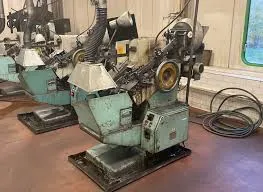
-
 Afrikaans
Afrikaans -
 Albanian
Albanian -
 Amharic
Amharic -
 Arabic
Arabic -
 Armenian
Armenian -
 Azerbaijani
Azerbaijani -
 Basque
Basque -
 Belarusian
Belarusian -
 Bengali
Bengali -
 Bosnian
Bosnian -
 Bulgarian
Bulgarian -
 Catalan
Catalan -
 Cebuano
Cebuano -
 Corsican
Corsican -
 Croatian
Croatian -
 Czech
Czech -
 Danish
Danish -
 Dutch
Dutch -
 English
English -
 Esperanto
Esperanto -
 Estonian
Estonian -
 Finnish
Finnish -
 French
French -
 Frisian
Frisian -
 Galician
Galician -
 Georgian
Georgian -
 German
German -
 Greek
Greek -
 Gujarati
Gujarati -
 Haitian Creole
Haitian Creole -
 hausa
hausa -
 hawaiian
hawaiian -
 Hebrew
Hebrew -
 Hindi
Hindi -
 Miao
Miao -
 Hungarian
Hungarian -
 Icelandic
Icelandic -
 igbo
igbo -
 Indonesian
Indonesian -
 irish
irish -
 Italian
Italian -
 Japanese
Japanese -
 Javanese
Javanese -
 Kannada
Kannada -
 kazakh
kazakh -
 Khmer
Khmer -
 Rwandese
Rwandese -
 Korean
Korean -
 Kurdish
Kurdish -
 Kyrgyz
Kyrgyz -
 Lao
Lao -
 Latin
Latin -
 Latvian
Latvian -
 Lithuanian
Lithuanian -
 Luxembourgish
Luxembourgish -
 Macedonian
Macedonian -
 Malgashi
Malgashi -
 Malay
Malay -
 Malayalam
Malayalam -
 Maltese
Maltese -
 Maori
Maori -
 Marathi
Marathi -
 Mongolian
Mongolian -
 Myanmar
Myanmar -
 Nepali
Nepali -
 Norwegian
Norwegian -
 Norwegian
Norwegian -
 Occitan
Occitan -
 Pashto
Pashto -
 Persian
Persian -
 Polish
Polish -
 Portuguese
Portuguese -
 Punjabi
Punjabi -
 Romanian
Romanian -
 Russian
Russian -
 Samoan
Samoan -
 Scottish Gaelic
Scottish Gaelic -
 Serbian
Serbian -
 Sesotho
Sesotho -
 Shona
Shona -
 Sindhi
Sindhi -
 Sinhala
Sinhala -
 Slovak
Slovak -
 Slovenian
Slovenian -
 Somali
Somali -
 Spanish
Spanish -
 Sundanese
Sundanese -
 Swahili
Swahili -
 Swedish
Swedish -
 Tagalog
Tagalog -
 Tajik
Tajik -
 Tamil
Tamil -
 Tatar
Tatar -
 Telugu
Telugu -
 Thai
Thai -
 Turkish
Turkish -
 Turkmen
Turkmen -
 Ukrainian
Ukrainian -
 Urdu
Urdu -
 Uighur
Uighur -
 Uzbek
Uzbek -
 Vietnamese
Vietnamese -
 Welsh
Welsh -
 Bantu
Bantu -
 Yiddish
Yiddish -
 Yoruba
Yoruba -
 Zulu
Zulu
CE Certification for Thread Rolling Tools Ensuring Quality and Safety Standards in Manufacturing
Understanding CE Certification for Thread Rolling Tools
In the realm of manufacturing and engineering, ensuring the safety and efficiency of tools is paramount. One critical aspect of this is the CE certification, particularly for thread rolling tools. This certification signifies that products meet the European Union's safety, health, and environmental protection standards. Given the importance of thread rolling tools in various applications, understanding CE certification becomes essential for manufacturers, suppliers, and end-users alike.
What is Thread Rolling?
Thread rolling is a manufacturing process used to form threads on a substrate by displacing material rather than cutting it away. This technique is widely used in producing bolts, screws, and other fasteners. The process not only improves the mechanical properties of the threads but also enhances their dimensional accuracy and surface finish. Thread rolling tools are specialized equipment designed for this purpose, and their performance is crucial for the end product's quality.
Importance of CE Certification
CE marking is not merely a bureaucratic requirement; it serves several essential functions. First and foremost, it demonstrates compliance with EU legislation, thereby facilitating free trade within the European Economic Area (EEA). For manufacturers of thread rolling tools, acquiring CE certification ensures that their products are recognized across EU member states, enhancing their market access and competitiveness.
In addition to market access, CE certification offers reassurance to customers. It indicates that the product has undergone rigorous testing and meets specific safety and environmental criteria. For thread rolling tools, this is particularly important, as any failure in tool integrity during operation can lead to significant safety hazards, including equipment damage or worker injury.
The Certification Process
ce certification thread rolling tool

The path to achieving CE certification involves several steps. Manufacturers must first conduct a conformity assessment, which includes evaluating the risks associated with their thread rolling tools. This involves identifying potential hazards and implementing measures to mitigate them. The manufacturer must also compile a technical file documenting the design, production process, and risk assessments.
Once the assessments are complete, the manufacturer may need to involve a notified body—an organization designated by EU member states—to perform an independent evaluation. The notified body conducts tests and inspections to verify compliance with relevant EU directives. If the products pass, the manufacturer can affix the CE marking, indicating that the tools meet all necessary requirements.
Benefits of CE Certification for Manufacturers
For manufacturers, the advantages of obtaining CE certification extend beyond legal compliance. It enhances the credibility of the brand and boosts customer confidence. In a competitive market, having CE certification can differentiate a manufacturer from its competitors who may not have undertaken the same efforts to ensure product quality and safety.
Moreover, CE certification can streamline the export process outside the EU as many countries recognize CE marking as a symbol of quality assurance. This opens up new markets and opportunities for manufacturers of thread rolling tools, enabling them to expand their businesses globally.
Conclusion
In conclusion, CE certification is an integral part of producing thread rolling tools that meet safety and quality standards. For manufacturers and suppliers, understanding this certification process is not just about compliance, but also about enhancing product reputation and ensuring customer safety. As industries continue to evolve and demand for high-quality manufacturing tools grows, the importance of CE certification in the thread rolling sector cannot be overstated. It represents a commitment to excellence, safety, and reliability—values that are crucial in today's manufacturing landscape.
